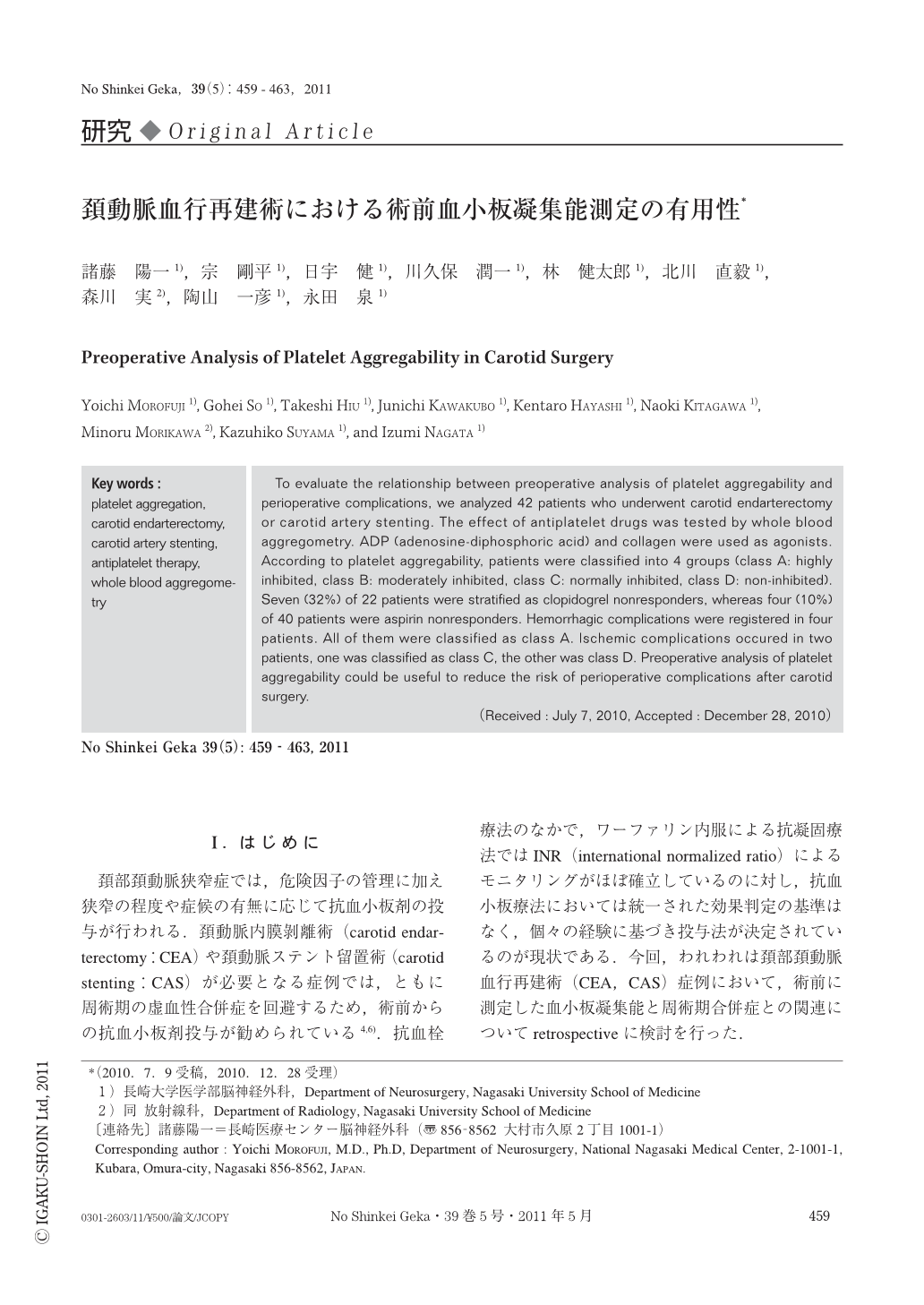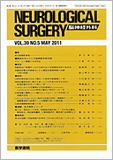Japanese
English
- 有料閲覧
- Abstract 文献概要
- 1ページ目 Look Inside
- 参考文献 Reference
Ⅰ.はじめに
頚部頚動脈狭窄症では,危険因子の管理に加え狭窄の程度や症候の有無に応じて抗血小板剤の投与が行われる.頚動脈内膜剝離術(carotid endarterectomy:CEA)や頚動脈ステント留置術(carotid stenting:CAS)が必要となる症例では,ともに周術期の虚血性合併症を回避するため,術前からの抗血小板剤投与が勧められている4,6).抗血栓療法のなかで,ワーファリン内服による抗凝固療法ではINR(international normalized ratio)によるモニタリングがほぼ確立しているのに対し,抗血小板療法においては統一された効果判定の基準はなく,個々の経験に基づき投与法が決定されているのが現状である.今回,われわれは頚部頚動脈血行再建術(CEA,CAS)症例において,術前に測定した血小板凝集能と周術期合併症との関連についてretrospectiveに検討を行った.
To evaluate the relationship between preoperative analysis of platelet aggregability and perioperative complications,we analyzed 42 patients who underwent carotid endarterectomy or carotid artery stenting. The effect of antiplatelet drugs was tested by whole blood aggregometry. ADP (adenosine-diphosphoric acid) and collagen were used as agonists. According to platelet aggregability,patients were classified into 4 groups (class A: highly inhibited,class B: moderately inhibited,class C: normally inhibited,class D: non-inhibited). Seven (32%) of 22 patients were stratified as clopidogrel nonresponders,whereas four (10%) of 40 patients were aspirin nonresponders. Hemorrhagic complications were registered in four patients. All of them were classified as class A. Ischemic complications occured in two patients,one was classified as class C,the other was class D. Preoperative analysis of platelet aggregability could be useful to reduce the risk of perioperative complications after carotid surgery.

Copyright © 2011, Igaku-Shoin Ltd. All rights reserved.


